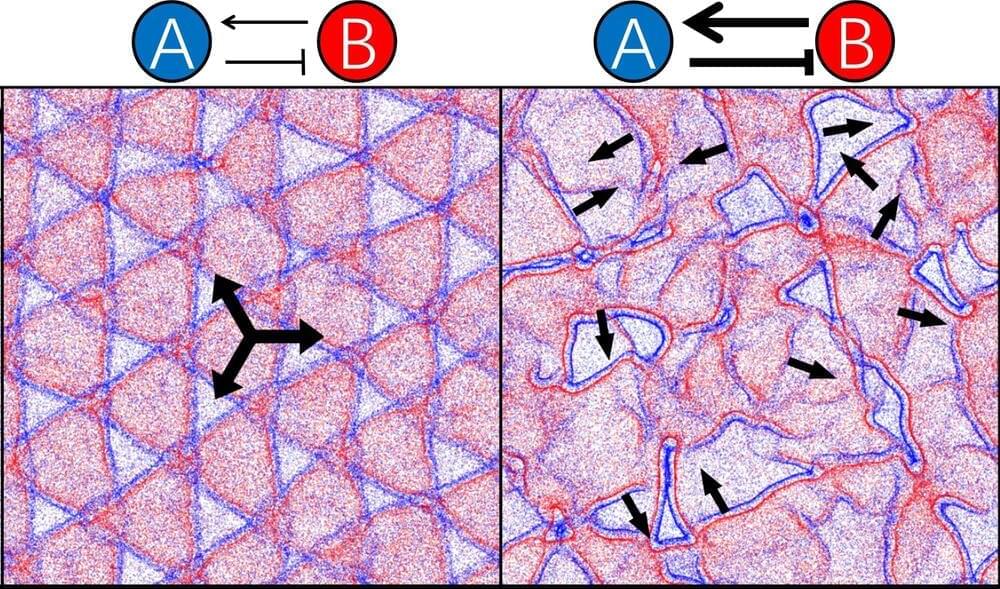A new model demonstrates that chasing interactions can induce dynamical patterns in the organization of bacterial species. Structural patterns can be created due to the chasing interactions between two bacterial species.
In the new model, scientists from the Max Planck Institute for Dynamics and Self-Organization (MPI-DS) describe how interactions on the individual level can result in a global self-organization of species. Their findings provide insights into general mechanisms of collective behavior. The findings are published in the journal Physical Review Letters.
In a recent study, scientists from the department Living Matter Physics at MPI-DS developed a model describing communication pathways in bacterial populations. Bacteria show an overall organizational pattern by sensing the concentration of chemicals in their environment and adapting their motion.
